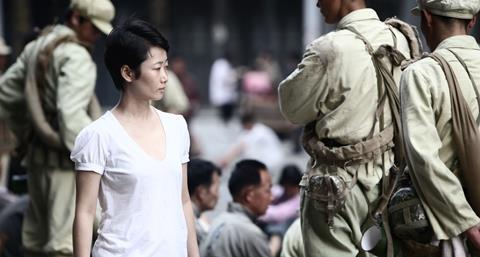Dir: Jia Zhangke. China. 2010. 138mins

You don’t have to possess a vast knowledge of Shanghai to appreciate I Wish I Knew but it probably helps. Jia Zhangke’s affectionate valentine to the city’s history, architecture and cinematic heritage is built around the vivid personal testimonies of eighteen of its citizens telling tales that span the period from the 1930s through the Communist victory in 1949 and the Cultural Revolution of 1960s to the present day.
Subject matter will define I Wish I Knew as a specialist item in most territories although extensive festival exposure seems assured.
Strong cinephile interest is guaranteed by the inclusion of a number of leading figures from the local film industry among the witnesses including Hou Hsiao-Hsien and actress Rebecca Pen who starred in Wong Kar-Wai’s Days Of Being Wild (1990). The lengthy running time and subject matter will define I Wish I Knew as a specialist item in most territories although extensive Festival exposure seems assured.
Landmark sights like Victoria Harbour and the location of the Shanghai World Expo provide the backdrop to a portrait of a city in constant flux over the past seventy years with most of the testimonies focusing on some kind of exile from the city or arrival there from another place.
The stories are often very pertinent to Shanghai but have a more universal resonance as someone recalls having one of the first air conditioning units in the 1930s or writer/runner Han Han recalls his desire to own a car with the royalties that were starting to accumulate from the success of his first book.
Scenes of contemporary Shanghai depict the crumbling grandeur of the past nestling alongside the many construction sites promising the shiny new buildings of the future. The testimonies tend to be at their most vivid when recalling the repercussions of Shanghai’s liberation in 1949. Wang Peimin recalls that her father died in 1948 three weeks before she was born. He had been given a death sentence for joining the Communist Party and the only photos she has of him are the ones taken by a journalist in the moments leading up to his execution.
The testimonies are shot in an unfussy manner in everyday locations and are designed to concentrate attention on the individuals and what they have to say. The film also makes extensive use of clips from a wide variety of films including Spring In A Small Town (1948), To Liberate Shanghai (1959) and Hou Hsiao Hsien’s Flowers Of Shanghai (1999).
Zuo Qiansheng recalls working as an assistant to Michelangelo Antonioni during his time in Shanghai in the early 1970s and the punishment he suffered for his inability to steer the Italian auteur towards an officially sanctioned view of what he should be shooting.
The one non-documentary element of the film is a whisp of a notion following the ghostly presence of actress Tao Zhao through the city. It seems an unnecessary addition to a project that is rich enough in its remembrances of times past.
Production company: XStream Pictures
International sales: Pyramide International, (33) 1 42 96 01 01
Cinematography: Likwai Yu
Editor: Zhang Zia
Music: Giong Lim
Main cast: Tao Zhao




















